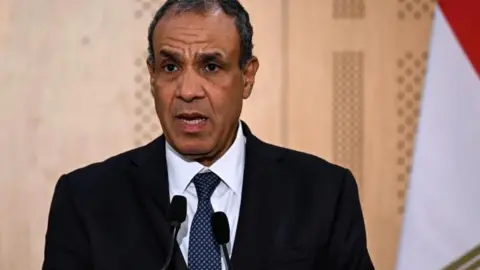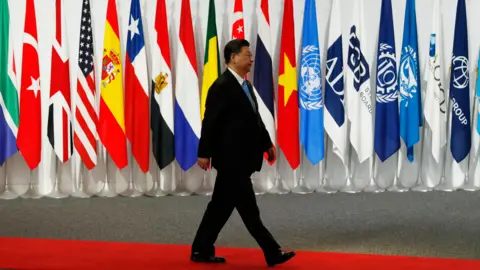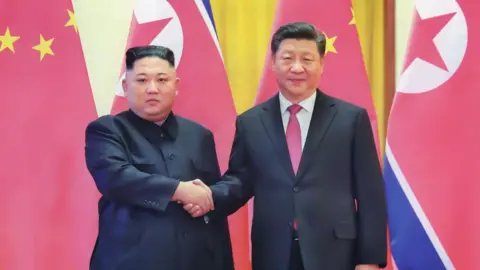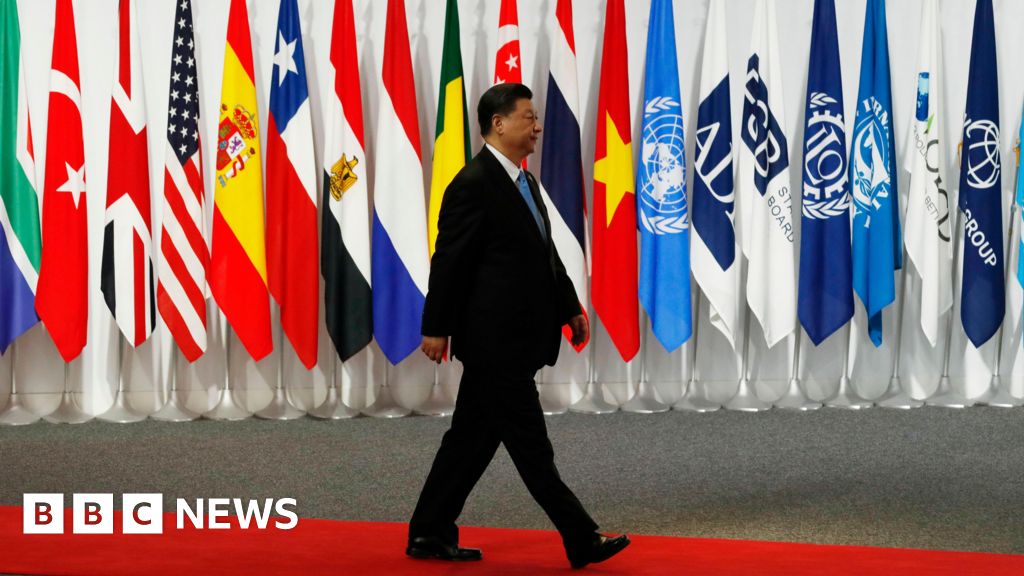After outfoxing Egypt on the diplomatic stage for more than a decade, Ethiopia is set to officially inaugurate one of the world's biggest dams on a tributary of the River Nile, burying a colonial-era treaty that saw the UK guarantee the North African nation the lion's share of its water.
The dam - built on the Blue Nile at a cost of about $5bn (£3.7bn), with a reservoir roughly the size of Greater London - has led to a surge in Ethiopian nationalism, uniting a nation often polarised along ethnic lines and mired in conflict.
Ethiopians may disagree on how to eat injera [their staple food], but they agree on the dam, Moses Chrispus Okello, an analyst with the South Africa-based Institute for Security Studies think-tank, told the BBC.
They do not see it as a pile of concrete in the middle of a river, but as a monument of their achievement because Ethiopians, both at home and in the diaspora, funded the dam's construction. There were waves and waves of appeals for contributions when construction started in 2011.
Named the Grand Ethiopian Renaissance Dam (Gerd), it is Africa's largest hydroelectric plant, raising hopes that not only will it meet the 135 million-strong population's energy needs but it will also give the country energy hegemony and boost its foreign currency earnings.
Planning to increase the sale of electricity to neighbouring countries like Kenya and Djibouti, and aiming to build a transmission network to sell to Middle Eastern states like Saudi Arabia, Ethiopia envisions a prominent role in regional energy politics.
However, Egypt sees the dam as a significant threat to its water security. Prof Abbas Sharaky, a geologist at Cairo University, pointed out that 93% of Egypt is desert, emphasizing that all of its population relies on the Nile. The dam, storing 64 billion cubic meters of water, risks creating severe shortages for the 107 million Egyptians who depend on it.
Despite the contentious situation, analysts believe military action is unlikely as both nations share a historical bond over the river. Negotiations are still expected to take place, aiming at finding mutually agreeable solutions for managing the crucial water resource.
The Gerd's completion signifies more than just a power source; it represents Ethiopia asserting its rights over the Nile, shifting the balance of power established during colonial times that favored Egypt. As Ethiopia prepares to celebrate the dam's inauguration, the focus will inevitably shift towards its future ambitions, including potential access to the Red Sea, raising national aspirations even higher.





















